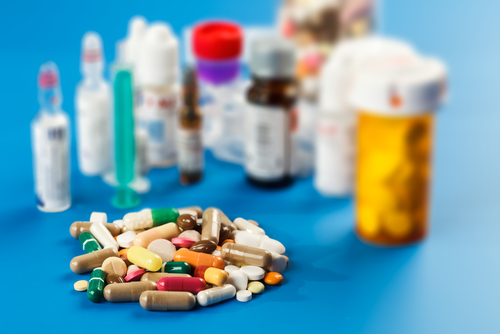
Adult incontinence can be managed through a variety of products and treatments. Some people find that medication helps them manage their incontinence problems, and others find that changes in diet and exercise helped them the most. Many doctors tell their patients that they should avoid certain foods to keep their incontinence under control. You know that you should avoid drinking a lot of water and that you should cut caffeine out of your diet, but did you know that something in your medicine cabinet could be making your incontinence worse? Certain medications you take on a regular basis could be aggravating your condition. If you take any of these medications, be sure that you talk to your doctor about whether or not you should continue to take them while you manage your incontinence problems
Antidepressants
Some doctors prescribe antidepressants to treat certain bladder problems, but urinary incontinence usually isn’t one of them. Some antidepressants can hinder your bladders ability to contract, which could cause bladder leakage. Others can decrease your awareness that you need to urinate, and that can cause accidents. If you take antidepressants you should talk to your urologist, and the doctor who prescribed you the antidepressants. See if they can recommend a different kind of medication to treat your depression, or if there’s a form of therapy you could try.
Muscle relaxants
Muscle relaxers don’t just work on the muscles that are causing your problems, they relax all of the muscles in your body, including your bladder muscles. Some people with urinary incontinence that take muscle relaxants have problems with accidents because of the medication’s effect on their bodies. If you have to take muscle relaxers, only use them when they’re absolutely necessary to decrease your risks of leakage and accidents. Also talk to your doctor and see if they can prescribe muscle relaxers that aren’t as powerful, but can still adequately manage your pain.
Blood pressure medication
Some blood pressure medicine (especially those that are classified as diuretics, water pills, and calcium channel blockers) are known to increase urine output, and to also relax the bladder muscles that can result in leaks and accidents. If you suspect that your blood pressure medication could be making your incontinence issues worse, let your doctor know. They may be able to switch or adjust your dose, and find ways to help you limit incontinence symptoms.
